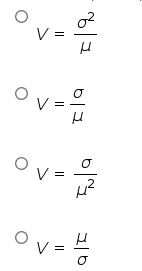Question
1.- If the number of values that a variable can take are countable (either finite or infinite), and if these values can be arranged in
1.- If the number of values that a variable can take are countable (either finite or infinite), and if these values can be arranged in a sequence that corresponds to positive integers, we are talking about a variable:
a) continuous random variable
b)discrete random variable
c)continuous discrete random variable
d)statistical variable
2.- Indicate what type of distribution the following properties describe:
- The distribution is symmetric about the mean. Therefore, the mean is equal to the median.
- The data that are part of this distribution tend to cluster around the mean.
- Only a small percentage of the data is more than three standard deviations from the mean.
a)Uniform distribution
b) Binomial distribution
c) Poisson distribution
d)Normal distribution
3.- It is a measure of the dispersion in the probability distribution:
a)variance of a random variable
b)standard deviation of a random variable
c)probability of the random variable
d)expected value of a random variable
4.- The results of certain blood tests are known to be normally distributed. Indicates what percentage of the results is between 40 and 80.
= 60 and = 18
a)10%
b)3%
c)1%
d)73%
5.- A measure that compares the relative dispersion of two probability distributions is the coefficient of variation, which is defined by:

Step by Step Solution
There are 3 Steps involved in it
Step: 1

Get Instant Access to Expert-Tailored Solutions
See step-by-step solutions with expert insights and AI powered tools for academic success
Step: 2

Step: 3

Ace Your Homework with AI
Get the answers you need in no time with our AI-driven, step-by-step assistance
Get Started


